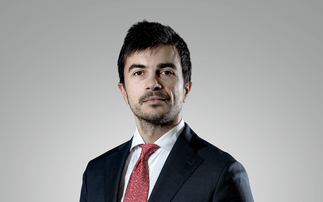The investment industry needs to do more to encourage a more diverse range of candidates into the sector if asset management is to keep up with the evolution of millennial wealth, according to HSBC Global Asset Management.
The arrival of millennials - those born from 1981 through to 1995 - on the investment scene is bringing a number of opportunities for the investment management industry.
Indeed, millennials are often thought of as a generation that could force asset managers to re-examine their client services models, as this technologically advanced and head-strong group of individuals challenge traditional financial advice models.
According to Dan Rudd, Head of External Distribution at HSBC Global Asset Management, it is a key reason why the industry needs to step up and ensure it is employing a highly diverse workforce with a varied range of skills to appropriately serve their needs.
"As an industry, we all want to build a sustainable business that reflects our client base," explains Rudd.
"Therefore, it is imperative that firms are encouraging young individuals from a range of different backgrounds into the industry as the investor universe evolves.
"In doing so, we will be ensuring that the industry continues to adapt to changing financial models and importantly, continues challenging traditional stereotypes of who 'fits' into the asset management industry."
Whilst many in the industry, like Rudd, recognise this need to amend the workforce by investing in young and diverse talent, changes have been slow to filter through so far.
According to the Diversity in Investment Management Benchmarking Study, carried out by the Diversity Project, 38% of over 1,900 managers surveyed were privately educated in 2017, while just 1% of those surveyed were from a Black background.
More than three-quarters of respondents were male, and just 4% reported themselves as having a disability.
Changing times
Rudd argues that in spite of the fact that firms evidently have a long way to go to change the status quo, the fact that there is more awareness surrounding diversity today and many firms like HSBC Global Asset Management are encouraging solutions that help recruit more diverse candidates, must not go unnoticed.
After all, it was not a topic for discussion at all when he started his career in the 1990s: "My first role in finance was at a merchant bank where a majority of the people I worked with had been through some sort of formal private education or sourced from university.
"It was very apparent to me at the time that I was in the minority having not done so. Yet broadening the recruitment process to encourage a more diverse workforce was also never discussed in the 1990s.
"The fact that the industry recognises there is an issue and is taking steps to change is hugely positive."
There are a number of reasons why the industry continues to struggle in attracting more diverse young talent.
Outdated stereotypes as to the 'types' of people that work in asset management is a constant challenge that younger individuals looking to enter the industry come up against.











